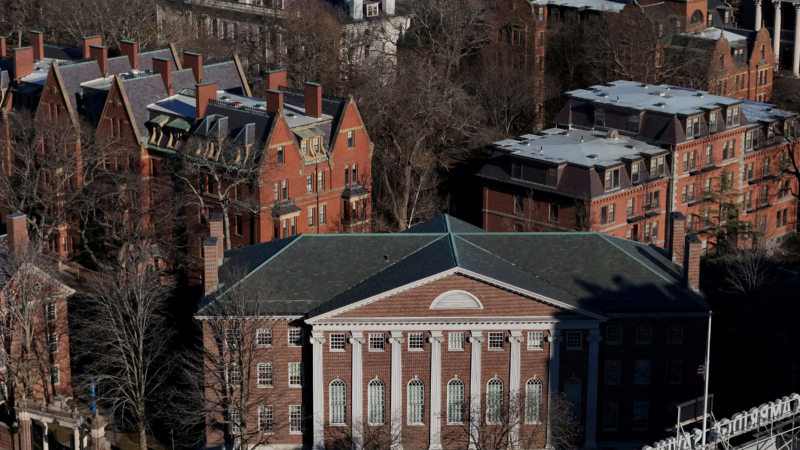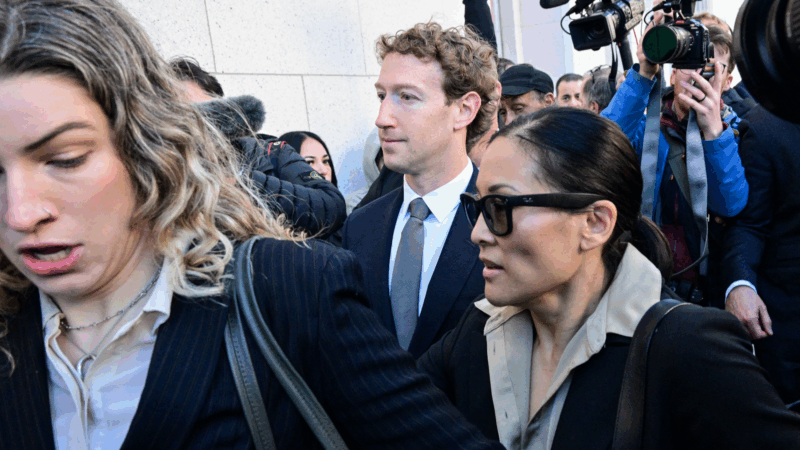Harvard rejects Trump administration’s demands for deep changes
Harvard University has rejected demands from the Trump administration that it eliminate its diversity, equity and inclusion (DEI) programs and make significant changes to its admissions and hiring practices, among other policy changes. At stake are about $9 billion in federal funding for the university.
“No government — regardless of which party is in power — should dictate what private universities can teach, whom they can admit and hire, and which areas of study and inquiry they can pursue,” Harvard President Alan Garber wrote in a letter to students and staff.
The response comes after the Trump administration sent Harvard a list of demands on April 11, including that the university eliminate DEI programs and race-based hiring, screen international students who are “supportive of terrorism or anti-Semitism” and ensure “viewpoint diversity” is reflected in its hiring practices.
“Although some of the demands outlined by the government are aimed at combating antisemitism, the majority represent direct governmental regulation of the ‘intellectual conditions’ at Harvard,” Garber said.
A White House spokesman, Harrison Fields, said in a statement that, “President Trump is working to Make Higher Education Great Again by ending unchecked anti-Semitism and ensuring federal taxpayer dollars do not fund Harvard’s support of dangerous racial discrimination or racially motivated violence.”
One of many universities under fire
The Trump administration has been targeting major universities for alleged violations of civil rights laws in an effort to eliminate DEI programs across the country. Following a year of pro-Palestinian protests on Columbia University’s campus, the administration cut $400 million in federal money for the institution. It also froze about $1 billion in funding for Cornell University and about $790 million for Northwestern University.
University leaders told NPR it has been a struggle to cope with demands from the federal government while trying to focus on the wellbeing of their students, and education.
In March, the federal government said its multi-agency Task Force to Combat Anti-Semitism was conducting a “comprehensive review” of $9 billion in federal contracts and “multi-year grant commitments” to Harvard.
“Harvard’s failure to protect students on campus from anti-Semitic discrimination – all while promoting divisive ideologies over free inquiry – has put its reputation in serious jeopardy,” wrote U.S. Secretary of Education Linda McMahon. “Harvard can right these wrongs,” she added, “and restore itself to a campus dedicated to academic excellence and truth-seeking, where all students feel safe on its campus.”
In a letter rejecting the government’s demands, Harvard’s lawyers outlined the steps the university has taken in the past 15 months to address antisemitism on its campus, including imposing “meaningful discipline for those who violate university policies” and hiring staff to support such programs.
Harvard’s lawyers wrote that the requested changes were in violation of the university’s First Amendment rights and exceeded the legal limits of the government’s authority to enforce civil rights laws
With a win over Sweden, the U.S. men’s hockey team will play for an Olympic medal
A thrilling overtime goal by defenseman Quinn Hughes puts Team USA through to a semifinal game against Slovakia. On the other side of the bracket, Canada had its own close call, but moves on to face Finland.
Zuckerberg grilled about Meta’s strategy to target ‘teens’ and ‘tweens’
The billionaire tech mogul's testimony was part of a landmark social media addiction trial in Los Angeles. The jury's verdict in the case could shape how some 1,600 other pending cases from families and school districts are resolved.
The Trump administration is increasingly trying to criminalize observing ICE
ICE officers often tell people tracking and watching them that they are breaking federal law in doing so, but legal experts say the vast majority of observers are exercising their constitutional rights.
8 backcountry skiers found dead and 1 still missing after California avalanche
Authorities say the bodies of eight backcountry skiers have been found and one remains missing after an avalanche near Lake Tahoe in California. Six others were found alive.
FDA reverses course on Moderna flu shot
The Food and Drug Administration's about-face comes a little more than a week after the agency refused to consider the company's application to market the new kind of influenza vaccine.
Following Trump’s lead, Alabama seeks to limit environmental regulations
The Alabama Legislature on Tuesday approved legislation backed by business groups that would prevent state agencies from setting restrictions on pollutants and hazardous substances exceeding those set by the federal government. In areas where no federal standard exists, the state could adopt new rules only if there is a “direct causal link” between exposure to harmful emissions and “manifest bodily harm” to humans.







